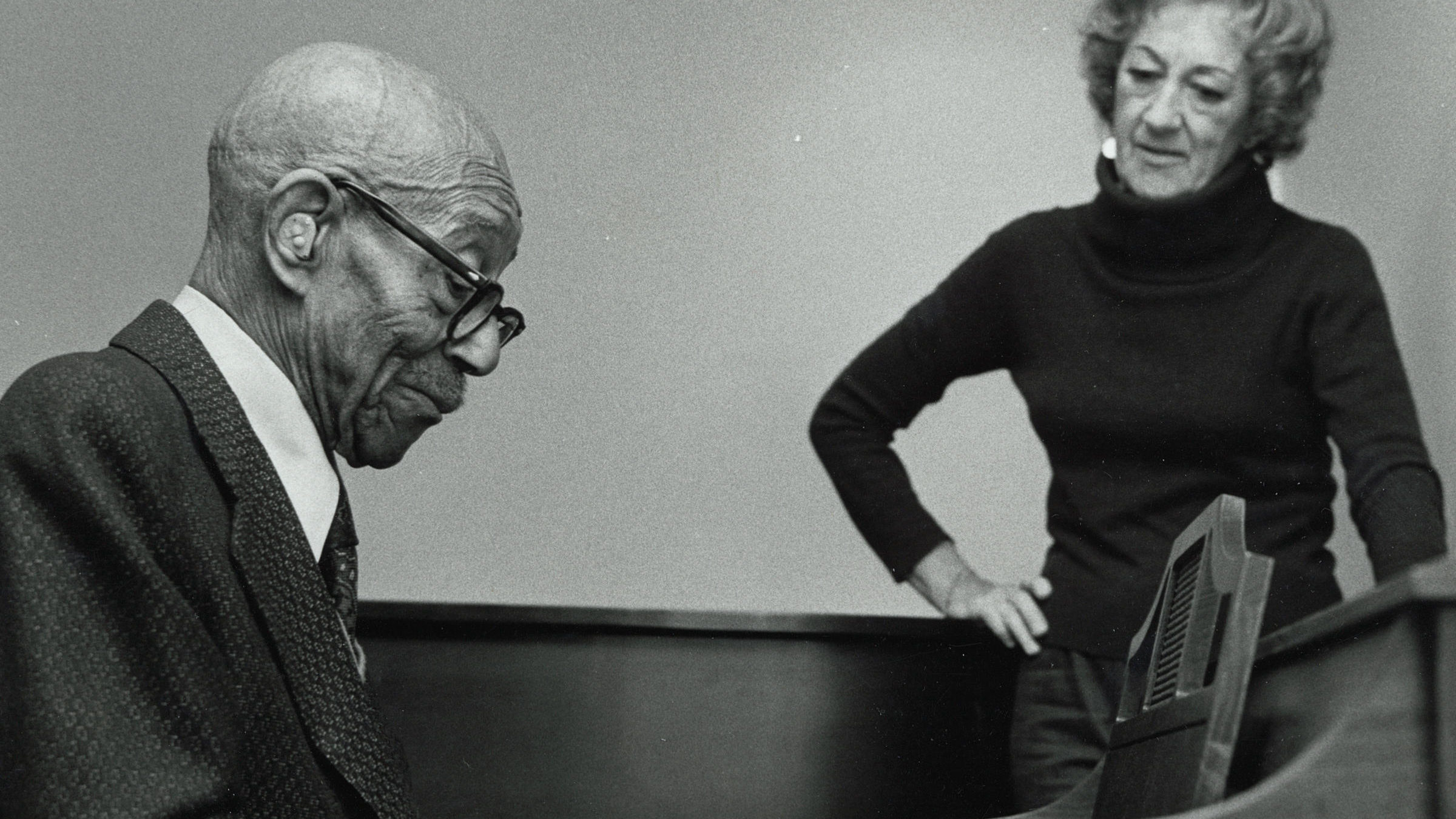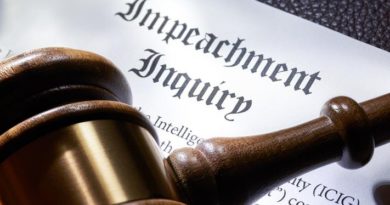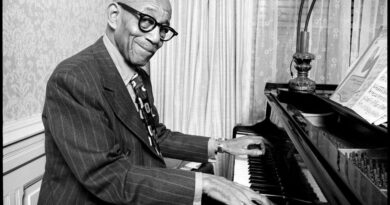Who Was Eubie Blake? The Story Behind the Man Who Gave This School Its Name
This Black History Month, we celebrate our school’s namesake, James Hubert “Eubie” Blake: a rebel, pioneer, innovator, and one of the greatest performers in American history.
Born in Baltimore Feb. 7, 1883 to former slaves, Eubie Blake would go on to form a deep, soulful connection to the ragtime music he had a special knack for playing.
Though Blake talked all the time in class and never applied himself to studies, eventually not meeting eligibility requirements for graduating eighth grade, the young prodigy was devoted to honing his skills in his piano lessons. While she did permit him to receive piano lessons from next-door neighbor Margaret Marshall, Blake’s devoutly Baptist mother thought the lessons were a waste of time and that the ragtime he loved producing was sinful and of ill-repute, so she forbade Blake from playing it in the house.
Being the rebellious youth he was, Blake persistently rendezvoused late at night with the ivories and was chosen to become a new regular musician at the pool rooms and burlesque bars across the street from his house. Ragtime music was purportedly created in black bars and bordellos—its syncopated rhythms born out of an amalgamation of march music and the experiences of black people living in midwestern and east-coast cities. This experience, though unorthodox for a teenage boy, paid Blake well and afforded him lots of practice time to improve upon his natural abilities and play the music he began composing as early as 15.
At 19, Eubie Blake traveled to New York for a brief stint as a buck dancer—a derogatory role for African Americans. It was during this time that his first composition, “Charleston Rag,” was published. After getting married in Atlantic City, New Jersey in 1910 to classical pianist Avis Lee, Blake was recalled to Baltimore by his mother, where he stayed for a bit before returning to New York and settling there in 1915. It was then that he met his longtime friend and musical partner, Noble Sissle.
Blake and Sissle were a dynamic vaudeville duo, with their very first song, “It’s All Your Fault,” picked up by famed musician Sophie Tucker, but their talent stretched further. Throughout their careers, Blake and Sissle went on to write, produce, compose for, and perform in several Broadway shows. They would also work with some of history’s best black performers, including Josephine Baker and Florence Mills.
In 1916, the pair became members of the Clef Club: a premier talent agency for black musicians who played all across the midwest and east coast for some of the wealthiest people in America at the time. White people of all classes were beginning to acquire a taste for ragtime, including performing icon Irving Berlin, whom Blake knew personally in the days prior to Berlin’s stardom. In 1922, Blake joined the American Society of Composers, Authors, and Publishers.
In later years, Blake served as a musical director for the USO during World War II; appeared on major late-night shows, like Saturday Night Live; earned a Presidential Medal of Freedom from former president Ronald Regan in 1981; and even had a musical written about him, featuring many of his original works, titled, Eubie!
Throughout his career, Eubie Blake composed more than 350 songs, pulling inspiration from his famous predecessors like George Cohan, Victor Herbert, Leslie Stuart; but also from his Maryland heritage, titling one composition after Chevy Chase.
Despite his personal and professional successes, life was not always easy for Eubie Blake. Spending the majority of his career as a black man catering to mainly white audiences before the Civil Rights era surely brought its challenges. In an interview, Blake proudly recalls when he refused to “cork” himself before performing in a certain venue, “corking” referring to the practice of burning one end of a cork and using the charcoal to produce a blackface effect.
Moments like these are a testament to Blake’s mettle and determination to succeed, not allowing systemic barriers to preclude him from being a revolutionary, which is a timeless lesson everyone can benefit from.
Senior Jessica Ashman, who helped execute the Black Student Union’s Eubie Blake birthday celebration Friday, reflects on Eubie’s legacy and accomplishments in light of the racism he faced.
“Even with his limited opportunities, and all the things that were going against him, he was still able to leave that great legacy and have all this influence,” Ashman says. “[That] inspires everyone else [to] live so that they can leave a legacy and have an influence on those around them.”
Ashman expresses that hosting a party for the school’s namesake and having it fall during Black History Month is incredibly meaningful.
“Not a lot of other schools are named after a black person period, and especially not a black musician,” she adds. “The fact that we are named after him [is very influential] and for the students, it means that there is the sense that you have the opportunity to do a lot because we have so many more opportunities today than [Eubie did].”




